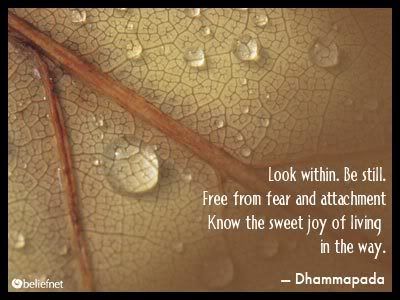Both the Washington Post and Time are reporting new violence this morning in Lhasa, the Tibetan capital.
Here is part of the WaPo coverage:
BEIJING, March 29 -- A melee erupted in the Tibetan capital of Lhasa on Saturday afternoon, despite the presence of hundreds of armed police who have been out in force since deadly riots rocked the city two weeks ago.
The incident occurred as a 15-member delegation of international diplomats was leaving the city after a tightly scripted two-day tour arranged by the Chinese government to show that the city was back under control. The diplomats, including officials from the U.S., Japanese and Australian embassies, apparently did not witness the event.
Although details were sketchy, reports indicated that armed police began massing shortly before 2 p.m. to check the identity papers of people in the area where the March 14 riots started, and Tibetans began running away rather than risk arrest. Security forces surrounded residential areas near the Ramoche and Jokhang temples, while several hundred Tibetans staged a rally, Radio Free Asia reported, citing unnamed witnesses in Lhasa.
One Lhasa resident, who spoke on condition of anonymity, said her friend was shopping at a government store in the area when someone ran in around 2 p.m. saying that another riot had begun. The store manager closed the shop doors, fearing a repeat of the chaos and violence of the previous riot, which left at least 19 people dead. But the manager was forced to reopen the doors when shoppers and employees demanded to leave. In the March 14 riot, five employees huddled on the second floor of a clothing shop were burned alive when their store went up in flames.
The woman ran out to the street but could not flag a taxi or a bus. "Everybody was in a panic," her friend said she told her.
The mobile phone signal in the area had apparently been cut off, so she had no way to call for help. So the woman ran for nearly an hour to reach her home. She told her friend that she had not seen a protest and that the streets were empty.
The Lhasa municipal police sent text messages to residents' mobile phones Saturday evening telling them "currently the social order in our city is nothing abnormal." It said that the security department was carrying out identity checks and that the procedures "caused some frightened citizens whose identification [documents] are not clear to run away," according to a translation from the Chinese provided by the International Campaign for Tibet. The text message also told citizens not to listen to or spread "wild rumors."
The same message was broadcast on the local evening news.
Chinese officials in Lhasa and Beijing could not be reached for immediate comment. Tibetan groups outside China said they learned about the melee from their sources in Lhasa.
"The situation is still volatile," said Kate Saunders, spokeswoman for Washington-based International Campaign for Tibet. "It seems Tibetans are still willing to raise concerns despite the dangers."
Matt Whitticase, a spokesman for the London-based Free Tibet Campaign, said, "We understand that according to an eyewitness, it involved hundreds of Tibetans. It was very quickly put down because there was a heavy police presence in the area. It was a peaceful protest."
The government-in-exile of the Tibetan spiritual leader, the Dalai Lama, issued a statement from its base in Dharmsala, India, calling the demonstration "massive." "Thousands joined into the protests within no time," it said. "These protests are happening after many days of intense suppression."
Thousands of police poured into Lhasa after the riots, the worst outbreak of violence there in nearly two decades.
The turmoil began March 10 when police broke up a protest led by monks against Chinese rule of the remote Himalayan region. The monks were marking the anniversary of a failed 1959 uprising against Chinese communist rule, led by the Dalai Lama, who was forced to flee. A larger protest the following day was also put down by police, who then confined the monks to their monasteries.
The Chinese government blames the March 14 riots on forces allied with the Dalai Lama, who denies responsibility. The Chinese have condemned reports that they used excessive force to crack down on peaceful protesters, saying that the 19 deaths were caused by the rioters. The government said Saturday that the families of those killed will each receive $28,500.
Police have detained more than 414 people and 289 turned themselves in for participating in the riot, according to Qiangba Puncog, Lhasa's chairman. Among them, 111 have since been released, he told visiting diplomats Friday night, according to the New China News Agency.
Newsvine picked up an AP story about Buddhist activism.
Monk-Led Protests Show Buddhist Activism
Buddhist monks hurling rocks at Chinese in Tibet, or peacefully massing against Myanmar's military, can strike jarring notes.These scenes run counter to Buddhism's philosophy of shunning politics and embracing even bitter enemies — something the faith has adhered to, with some tumultuous exceptions, through its 2,500-year history.
But political activism and occasional eruptions of violence have become increasingly common in Asia's Buddhist societies as they variously struggle against foreign domination, oppressive regimes, social injustice and environmental destruction.
More monks and nuns are moving out of their monasteries and into slums and rice paddies — and sometimes into streets filled with tear gas and gunfire.
"In modern times, preaching is not enough. Monks must act to improve society, to remove evil," says Samdhong Rinpoche, prime minister of the Tibetan government-in-exile and a high-ranking lama.
"There is the responsibility of every individual, monks and lay people, to act for the betterment of society," he told The Associated Press in Dharmsala, India, discussing protests in Tibet this month that were initiated by monks.
In widespread protests over the past three weeks, crimson-robed monks — some charging helmeted troops and throwing rocks — have joined with ordinary citizens who unfurled Tibetan flags and demanded independence from China. Beijing's official death toll from the rioting in Lhasa is 22, but the exiled government of the Dalai Lama says 140 Tibetans were killed there and in Tibetan communities in western China.
Bloodshed also stained last fall's pro-democracy uprising in Myanmar, dubbed the "Saffron Revolution" after the color of the robes of monks who led nonviolent protests against the country's oppressive military regime.
Read the rest of the story.
Finally, Slate explains a little about the Chinese claim on Tibet, and about the origin of Buddhist monks being violent.
Why Does China Care About Tibet?
Plus, when are monks allowed to get violent?Buddhist monks and other Tibetans began protesting in and around Lhasa on March 10, the anniversary of a major uprising against Chinese rule. Tensions have been flaring in the region ever since, with some protests turning violent. Tibet is a remote, impoverished mountain region with little arable land. Why does China care so much about keeping it?
Nationalism. China invaded Tibet in 1950, but Beijing asserts that its close relationship with the region stretches back to the 13th century, when first Tibet and then China were absorbed into the rapidly expanding Mongol empire. The Great Khanate, or the portion of the empire that contained China, Tibet, and most of East Asia, eventually became known as China's Yuan Dynasty. Throughout the Yuan and the subsequent Ming and Qing dynasties, Tibet remained a subordinate principality of China, though its degree of independence varied over the centuries. When British forces began making inroads into Tibet from India in the early 1900s, the Qing emperors forcefully reasserted their suzerainty over the region.
Soon after, revolutionaries overthrew the Qing emperor—who, being Manchu, was cast as a foreign presence in Han-majority China—and formed a republic. Tibet took the opportunity to assert its independence and, from 1912 to 1950, ruled itself autonomously. However, Tibetan sovereignty was never recognized by China, the United Nations, or any major Western power. Both Sun Yat-sen's Nationalists and their rivals, Mao Zedong's Communists, believed that Tibet remained fundamentally a part of China and felt a strong nationalistic drive to return the country to its Qing-era borders. The 1950 takeover of Tibet by Mao's army was billed as the liberation of the region from the old, semi-feudal system, as well as from imperialist (i.e., British and American) influences. Resentment of the Chinese grew among Tibetans over the following decade, and armed conflicts broke out in various parts of the region. In March 1959, the capital of Lhasa erupted in a full-blown but short-lived revolt, during which the current Dalai Lama fled to India. He has lived there in exile ever since.
There are also strategic and economic motives for China's attachment to Tibet. The region serves as a buffer zone between China on one side and India, Nepal, and Bangladesh on the other. The Himalayan mountain range provides an added level of security as well as a military advantage. Tibet also serves as a crucial water source for China and possesses a significant mining industry. And Beijing has invested billions in Tibet over the past 10 years as part of its wide-ranging economic development plan for Western China.
Bonus Explainer: When are Buddhist monks allowed to get violent? When it's for a compassionate cause. Monks and nuns in Tibet take at least two, and sometimes three, sets of vows that constrain their behavior. For most violations, the penalty is usually a confession that the act was committed. But if a monk were to kill another human being—one of the most serious violations of the Pratimoksha vows—he would be liable to expulsion from the monastery. That being said, there is a tradition in Tibetan mythology that could be used to justify taking violent action against an oppressor. The ninth-century king Langdarma, a follower of the Bön tradition, is popularly believed to have persecuted Buddhists during his reign. A monk assassinated him on the grounds that, by killing Langdarma, the monk was acting compassionately toward the tyrant—taking bad karma upon himself in order to spare the king from accumulating the same through his despotic actions.
It's important to note, however, that the actual extent to which monks were responsible for the violence in Tibet remains unclear. Monks instigated the initial demonstrations, but lay Tibetans may have ratcheted up those protests to riot status.
Tags:









